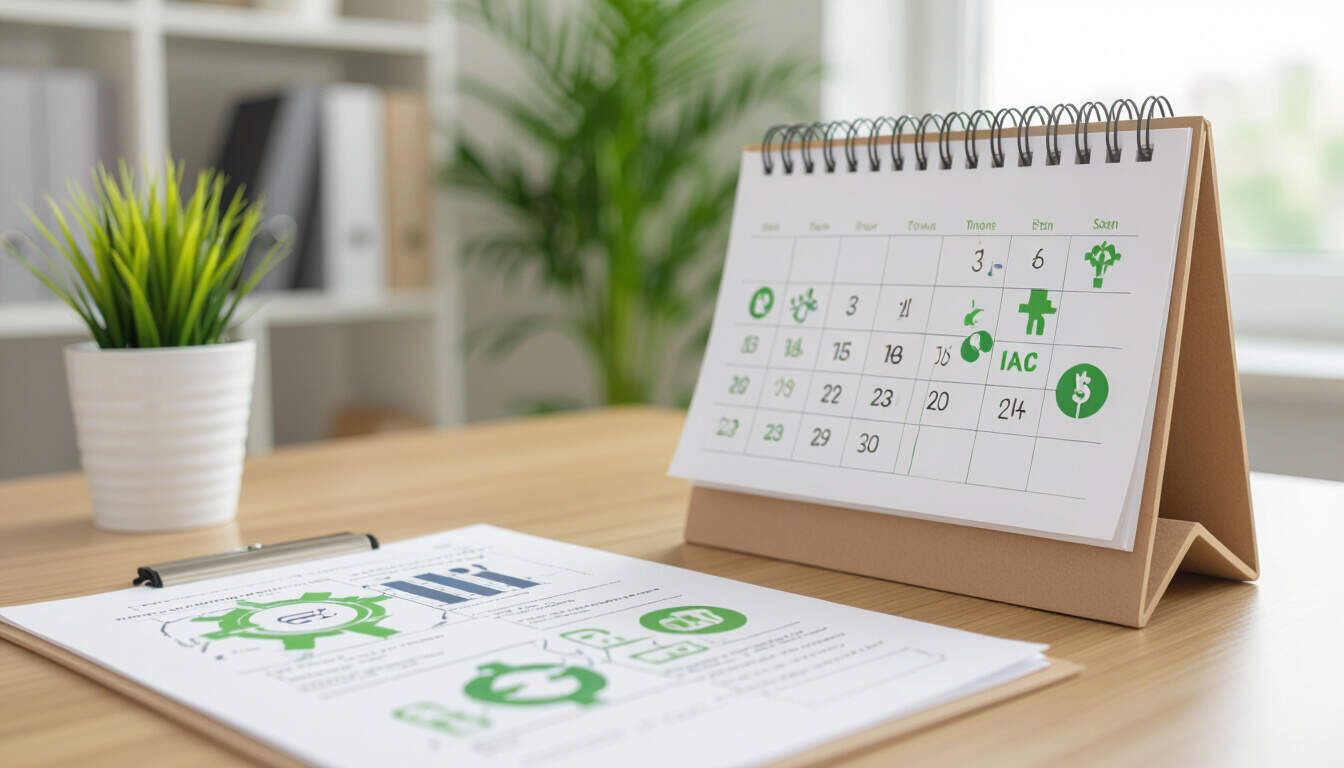Strategic Scheduling of Energy Audits for Business Efficiency
 by Lilian Nienow
by Lilian Nienow
Effective scheduling of energy audits plays a key role in optimizing energy use and cutting costs for businesses. This article explores practical approaches, real-world examples, and trends in energy efficiency to help professionals manage resources wisely.

Energy audits form a core part of managing budgets in organizations focused on sustainability. Regular assessments help identify inefficiencies and promote better resource use. For instance, energy audits can reveal areas where consumption exceeds needs, leading to targeted improvements.
In planning, scheduling these audits requires a structured approach. Businesses often begin by assessing their operational calendar to avoid disruptions. By aligning audits with low-activity periods, companies maintain productivity while gathering essential data. This method ensures that scheduling supports overall goals without unnecessary downtime.
One effective strategy involves using digital tools for coordination. Software platforms allow teams to set reminders and track progress, making the process more streamlined. For example, integrating audit schedules with maintenance routines can maximize outcomes by addressing multiple issues at once. Such integration highlights the value of proactive energy audits in long-term planning.
Consider a manufacturing firm that implemented a quarterly audit system. Initially, the company faced high utility bills due to outdated equipment. By scheduling audits every three months, they identified and upgraded inefficient machinery, resulting in a 15% reduction in energy use within a year. This example shows how consistent evaluations contribute to cost savings and environmental benefits.
Another case comes from a retail chain that adopted annual audits tied to fiscal planning. The chain used data from these reviews to adjust their energy budgets, focusing on lighting and heating systems. Over two years, this led to measurable decreases in expenses, demonstrating the impact of routine checks on financial health.
Emerging trends in energy efficiency offer new ways to enhance scheduling. For example, smart sensors and IoT devices provide real-time data, allowing for more precise timing of audits. These technologies enable businesses to predict potential issues before they escalate, turning energy audits into a dynamic tool for optimization.
In addition, regulatory changes are influencing how audits are planned. Many regions now require periodic energy assessments for compliance, pushing companies to incorporate them into standard procedures. This shift encourages a more systematic approach, where scheduling becomes part of broader sustainability efforts.
To implement these strategies, businesses can follow a simple framework:
- Assess current usage: Gather baseline data on energy consumption to identify patterns.
- Set priorities: Focus on high-impact areas like HVAC or lighting based on initial findings.
- Develop a timeline: Create a calendar that balances audit needs with business operations.
- Monitor results: Use metrics to evaluate outcomes and adjust future schedules accordingly.
This framework not only aids in scheduling but also supports overall energy budgeting by ensuring resources are allocated effectively. As more organizations prioritize efficiency, the role of audits in decision-making continues to grow.
Looking ahead, innovations like automated reporting systems are simplifying the process. These tools analyze data automatically, helping managers make informed choices without extensive manual effort. For sustainability enthusiasts, this means audits can evolve into ongoing practices rather than isolated events.
In summary, effective energy audits scheduling drives tangible benefits for energy managers and business professionals. By adopting practical strategies and learning from case studies, organizations can achieve greater efficiency and contribute to sustainable practices.
